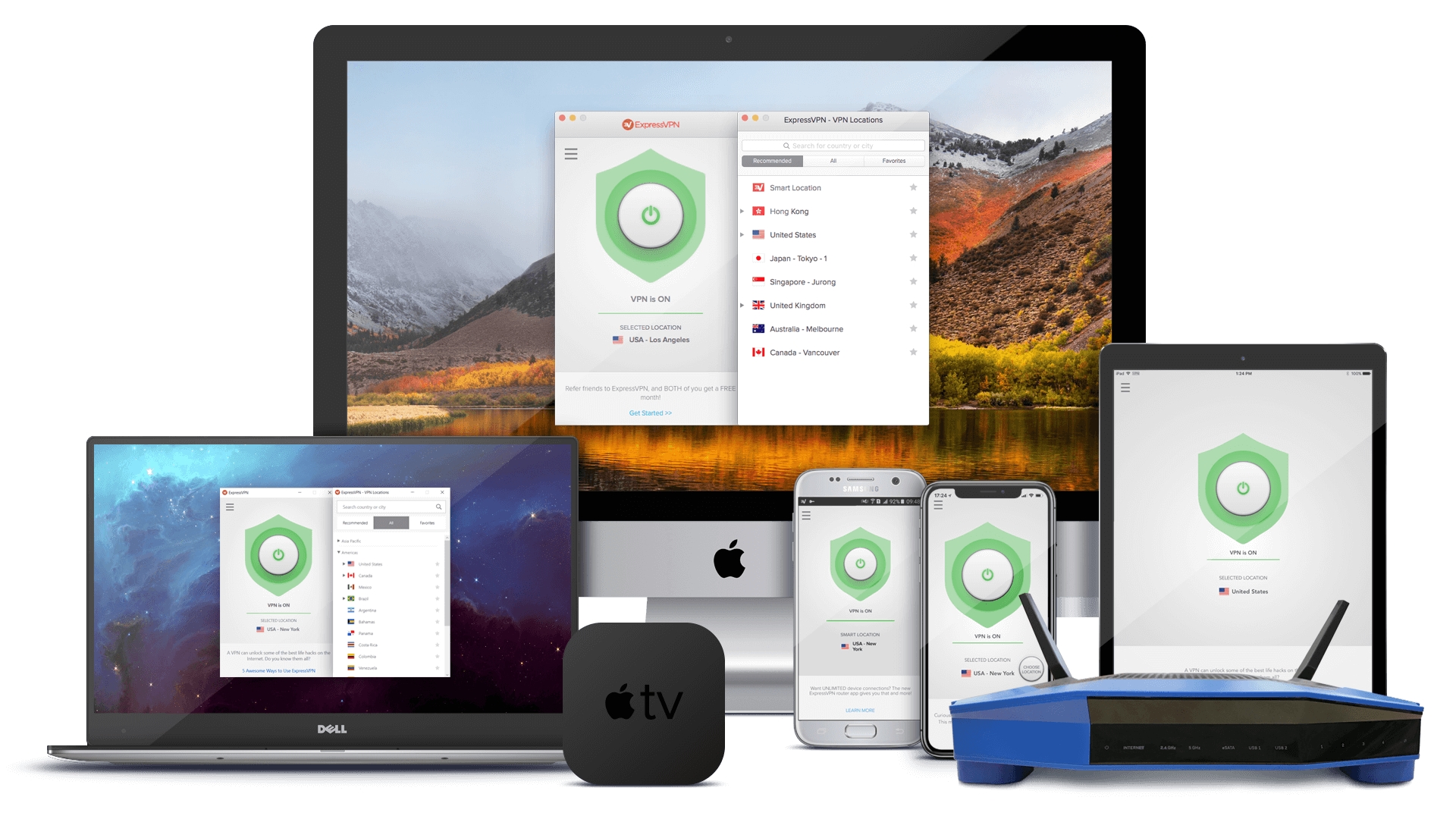

You've likely already heard of the best VPN, or Virtual Private Network. But hearing about it - because you want to watch Netflix when travelling abroad perhaps, or getting around a website blocked by your office - might not have offered you much insight. Thankfully you're in the right place to find out why a VPN is also great for anonymity, security and personal online safety.
What is a VPN?
A VPN is a smart way to mask your online identity. Without one, when you go online, you get connected to a server and given a unique IP address, this identifies where you are logging on from and can store data about you. These servers, that you bounce through, are relatively open, meaning there could be people watching and, potentially, threats that can access your data.
This IP address can give away your real world identity, allowing potentially negative sorts to track you. When travelling and using open Wi-Fi at airports and hotels that could be insecure, a VPN is especially useful.
This specific identity also means your location can be determined. So if you're a UK citizen abroad and want to catch up on your BBC iPlayer shows then you might be blocked in a country it isn't accessible from. A VPN is a great way to still appear on UK soil so you can access the good old BBC or ensuring you can watch all your favourite shows via the best Netflix VPN.
How does a VPN work?
Time to get that identity leak plugged up. A VPN can help here. It essentially hides your IP address and location by bouncing your signal through other servers. To any online entity or threat, you appear to be someone else logged in at another location.
That means that when contacting a website you'll be going via the encrypted VPN. Your computer will tell the VPN it wants to access the website, that request will be sent from the VPN secure server and the response will then be forwarded to you.
This all affords you a buffer layer which can help keep you safe and more anonymous when online - rather than having all your data collected by every site you visit.
Is a VPN secure?
A VPN is a super secure way to be online, thanks to the awesomeness (technical term) of encryption. This is a military grade digital security that is used by governments, banks and security firms worldwide. So you can definitely rely on it being secure.
An encryption works by giving both parties keys. The message is sent in code with one key to read that code, the other key to write the code. If you don't have a key you can't understand the message - even if you do somehow manage to get hold of it. There are different grades of encryption but this will depend on which VPN service you go for, with some more complex than others.
All that means your network is pretty much unhackable and all your browsing information is encrypted in transit making it unreadable anyway.

Does a VPN work for P2P torrents?
Torrenting, aka P2P, is illegal in some cases, but not all. What you choose to share is down to you. If you want anonymity and a layer or security, then a torrenting VPN can provide that.
Not all VPN services support torrents and some are faster than others. So it's worth reading into this if you're getting a VPN specifically for P2P content.
How fast is a VPN?
A VPN's speed varies. This is due to location and servers. One VPN service could be a lot faster than another for you because it may have more servers, or better connections between servers, allowing for faster data sharing. The servers themselves could be faster VPN to VPN too, with plenty of fast VPNs available where speed is a priority.
Some VPN services are really fast for local access, but then slow down a lot once you change your location to somewhere far away. Others offer a more consistent speed no matter where you are. As you might imagine you usually get what you pay for, which is why we'd always advise caution about simply downloading a free VPN.
What is the best VPN for me?
This depends what you need. But for an overall top rated service we vouch for T3-award winning ExpressVPN as it's well priced and get but offers a solid all-round setup. You get a wide number of internationally placed servers, high-grade encryption security and an excellent 24/7 live chat support. Also, the clients (apps) work really work across devices including iOS, Android, Mac and Windows with a super simple to user interface and added security of a kill switch and more. All that can be used across five devices at the same time.
What's more, you can give ExpressVPN a try for free by making use of its no quibble 30-day money back guarantee. That said, the value offered by its one year plan is superb, with a 49% saving and 3 months extra free.
If you want the cheap option, then there are free services but these generally limit you on data. Hotspot Shield Free VPN is a great option as it gives you plenty for free and then you can upgrade to the Premium version if you like it and want more. You are limited to 500MB of data allowance per day on the free version, but at 15GB per month that's a lot for most competitors.
Read more:
- Find out what a VPN proxy is
- Get the best Windows VPN
- Apple user? Here's the best Mac VPN for your iMac or MacBook
Get all the latest news, reviews, deals and buying guides on gorgeous tech, home and active products from the T3 experts
Luke is a freelance writer for T3 with over two decades of experience covering tech, science and health. Among many things, Luke writes about health tech, software and apps, VPNs, TV, audio, smart home, antivirus, broadband, smartphones and cars. In his free time, Luke climbs mountains, swims outside and contorts his body into silly positions while breathing as calmly as possible.
